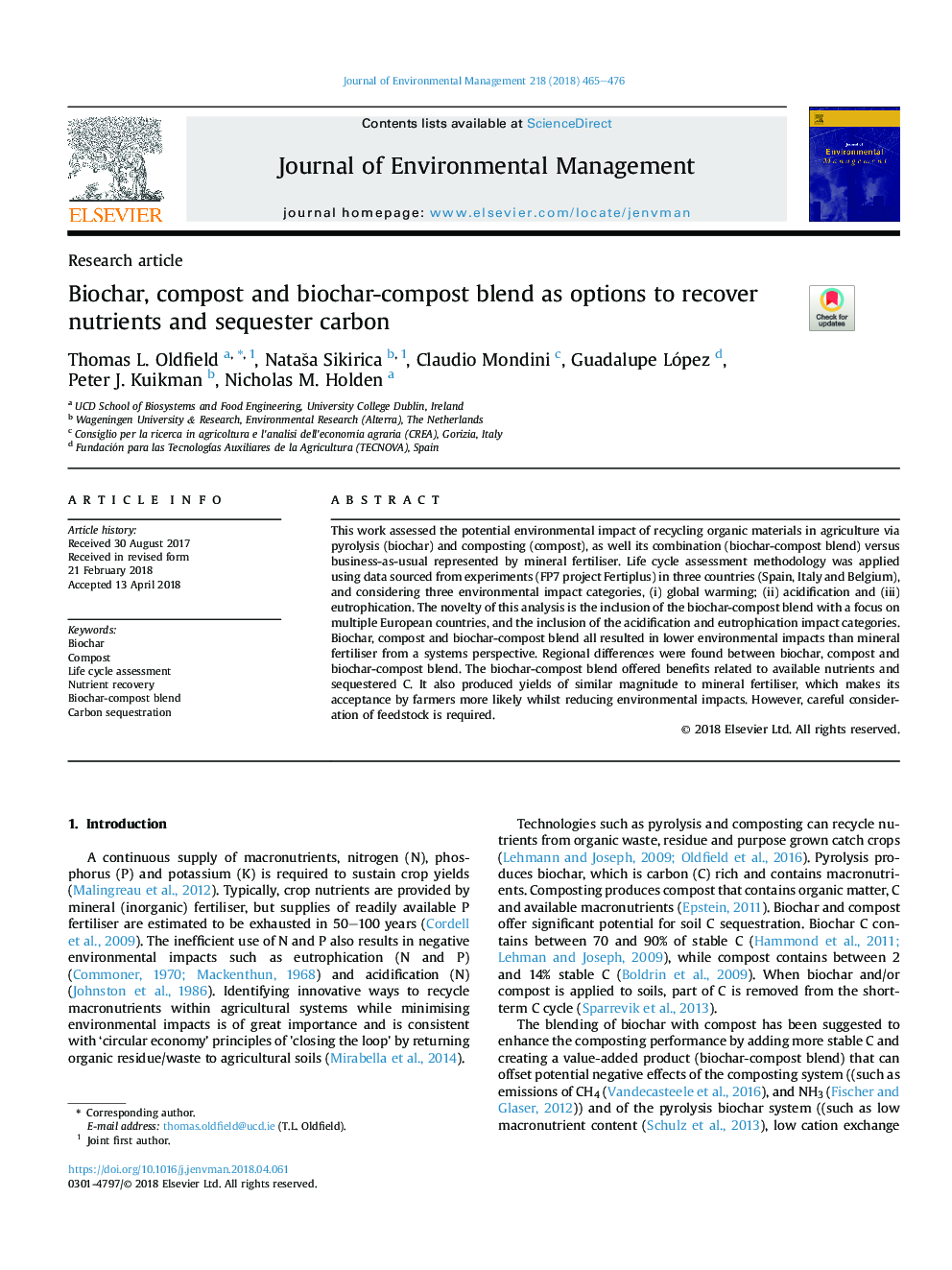| Article ID | Journal | Published Year | Pages | File Type |
|---|---|---|---|---|
| 7477092 | Journal of Environmental Management | 2018 | 12 Pages |
Abstract
This work assessed the potential environmental impact of recycling organic materials in agriculture via pyrolysis (biochar) and composting (compost), as well its combination (biochar-compost blend) versus business-as-usual represented by mineral fertiliser. Life cycle assessment methodology was applied using data sourced from experiments (FP7 project Fertiplus) in three countries (Spain, Italy and Belgium), and considering three environmental impact categories, (i) global warming; (ii) acidification and (iii) eutrophication. The novelty of this analysis is the inclusion of the biochar-compost blend with a focus on multiple European countries, and the inclusion of the acidification and eutrophication impact categories. Biochar, compost and biochar-compost blend all resulted in lower environmental impacts than mineral fertiliser from a systems perspective. Regional differences were found between biochar, compost and biochar-compost blend. The biochar-compost blend offered benefits related to available nutrients and sequestered C. It also produced yields of similar magnitude to mineral fertiliser, which makes its acceptance by farmers more likely whilst reducing environmental impacts. However, careful consideration of feedstock is required.
Related Topics
Physical Sciences and Engineering
Energy
Renewable Energy, Sustainability and the Environment
Authors
Thomas L. Oldfield, NataÅ¡a Sikirica, Claudio Mondini, Guadalupe López, Peter J. Kuikman, Nicholas M. Holden,
